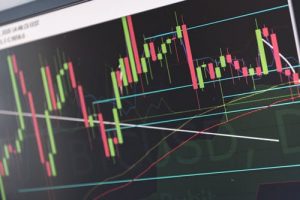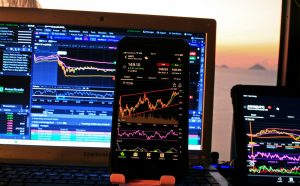
Forex traders must always be aware of the risks and rewards associated with each type of investment. It is especially true when choosing the right exchange-traded fund (ETF) for their portfolio. Knowing which is best suited to your investment goals can be challenging with so many currency ETFs available. Taking the time to fully comprehend the different types of ETFs and their benefits, you can make an informed decision to help you reach your financial objectives.
For example, if you’re looking for an ETF that tracks the performance of a particular currency, then a Forex ETF may be the ideal choice for you. Alternatively, a diversified ETF could be better if you’re looking for an ETF that provides exposure to a broad range of assets. Let’s look at some tips that yield success in ETF trading.
Don’t trade too often
Forex traders often make the mistake of trading too frequently in the hope of making small profits that will add up over time. This approach is often counterproductive, as it can lead to significant losses that offset any gains made. A better approach is to let your investments grow over time by only making trades when there is a high probability of success. By taking a more patient approach, you will be more likely to make profitable trades and grow your account long-term.
Stay disciplined and don’t get caught up in emotions
Forex traders must stay disciplined and not get caught up in emotions if they want to succeed. When a trade goes against them, it is easy to get angry and want to retaliate by placing a more extensive trade in the opposite direction. However, this is often a losing proposition, as it can lead to even more significant losses. Forex traders must learn to take their losses in stride and stick to their original trading plan.
Similarly, it is essential not to get too excited when a trade is going well. Greed can lead to careless decision-making, and traders can quickly give up their gains if they enter too many or place too large trades. Forex traders can increase their chances of success by staying disciplined and keeping emotions in check.
Have a solid trading plan and stick to it
Forex traders who are serious about making money in the market need to have a solid trading plan and stick to it. You would be amazed how many traders do not have a plan or deviate from it when they are in a trade. Without a plan, you are more likely to make impulsive decisions that lead to significant losses. A trading plan should outline your goals, strategies, and risk management rules.
It should also specify the time frame you will be trading in and the currency pairs you will be trading. Stick to your plan and monitor your results so you can adjust your plan as needed.
Monitor your investments regularly
Forex traders are well-advised to keep a close eye on their investments. The foreign exchange markets are dynamic and ever-changing, so monitoring your positions regularly and making changes as needed is essential. By actively managing your Forex portfolio, you can maximise your profits and minimise your losses. There are several ways to stay on top of the latest market developments.
You can read Forex news articles, subscribe to Forex trading signals, or use a Forex trading robot. Whichever method you choose, double-check that you stay informed and make adjustments to your Forex portfolio.
Diversify your portfolio
Forex traders looking to diversify their portfolios across different asset classes may consider investing in commodities. Commodities are natural resources used in the production of goods and services. Examples of commodities include oil, gas, gold, and silver. Unlike stocks and Forex, which can be volatile, commodities tend to be more stable, making them an attractive investment for those looking for long-term growth.
In addition, investing in commodities can help to hedge against inflation. When the prices of goods and services rise, the value of commodities typically increases as well. As a result, diversifying into commodities can help protect your portfolio from market fluctuations.







